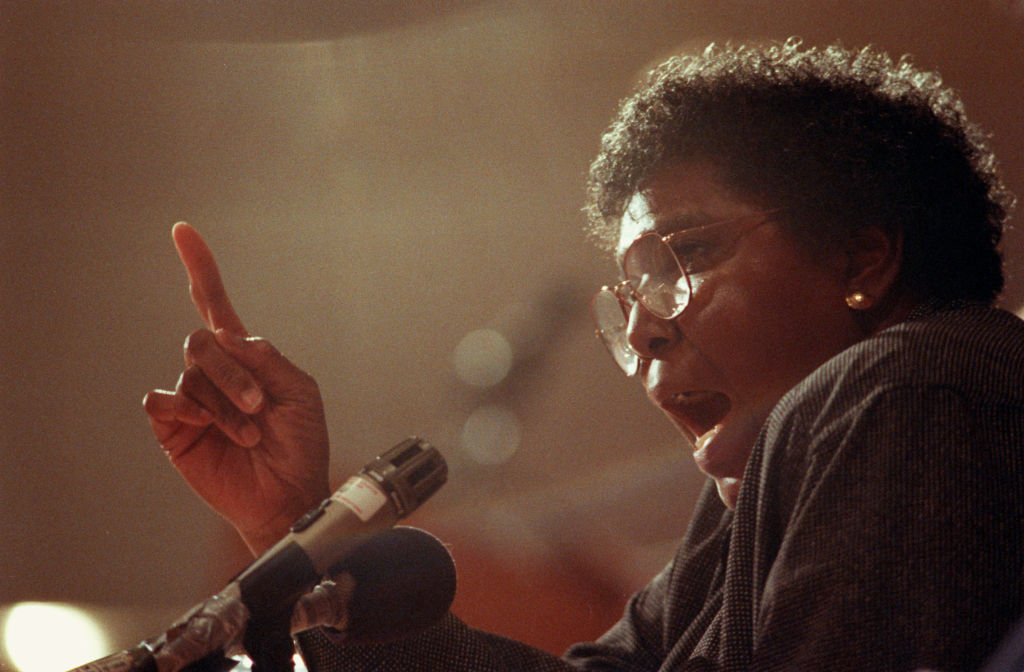Why It’s Important To Invest In Young Africans In STEM

Source: BFG Images / Getty
Upon arriving at the Clinton Global Initiative 2024 Annual Meeting, I was struck by the urgency driving every part of the agenda. The focus was clear: sharing and replicating what works.
In the very first panel, there was a lively discussion about de-risking capital with donor dollars to scale development interventions. Hearing this message from actor Matt Damon highlighted what’s possible when the right connections meet the right approach.
Damon, who co-founded Water.org with engineer Gary White in 2007, initially thought they would focus on drilling wells. But nearly two decades later, the nonprofit is leveraging donor dollars to de-risk a loan portfolio, allowing families to invest in clean water solutions.
Faced with the reality that governments wouldn’t have enough funds to address infrastructure shortcomings, they created a new structure that welcomed capital markets, and the model has succeeded: millions of families in Africa, Asia and Latin America now have access to clean water and sanitation, thanks to Water.org.
Think about how this approach can be replicated: using philanthropy and impact capital to reduce risk for capital markets, enabling large-scale investment.
This is exactly the approach we take at 8B to enable loans for African students pursuing STEM degrees, initially in the U.S. Compared to other regions; fewer Africans are attending global universities due to limited financing. Scholarships alone cannot meet the overwhelming demand for education abroad, and most African governments – focused on basic education at home – cannot afford to fund overseas education.
Like Damon, we solve this issue by leveraging donor and impact dollars to reduce risk for lenders. This makes it possible to support more African students through loans than scholarships could cover alone.
A STEM degree from a U.S. or global university is highly valuable in the international labor market. These students are investing in the potential to multiply their income, become role models, support their communities through remittances and rise within their chosen fields. They provide the human capital needed to power global innovation in health, climate, AI and beyond.
For American colleges and universities, this model presents an opportunity. With domestic enrollment declining, partnering with us helps campuses meet their revenue goals while filling classrooms with qualified African students. We are working closely with institutions, including Historically Black Colleges and Universities (HBCUs), to expand the footprint of African students and accelerate growth.
I shared these insights as a panelist in a CGI Spotlight Session on “Investing in Africa’s Next Generation to Promote Economic Progress Across the Continent.” It was a chance to present the guiding principles of 8B Education Investments (8B) on a global stage, focusing on how we combine commercial and impact capital to connect the world’s fastest-growing university-age population to global higher education, nurturing the STEM workforce needed to drive innovation across sectors.
The missed CGI opportunity, however, was in not linking these discussions explicitly to one another, allowing participants to more clearly identify and target funding mechanisms for scaling social transformation efforts that are working. Education solutions for Africa were discussed in one room, while the deeply interconnected issues of climate and water innovations were addressed in another, even though both are using the same financial instrument that clearly works. Damon’s financial model applies beyond Water.org, yet this was not explicitly linked to those of us using similar instruments to scale African STEM talent access to global universities.
What we need is to see the adoption of these approaches beyond the early adopters. Damon’s successes through Water.org have incrementally persuaded banks and lenders to step outside of their comfort zones and invest in what’s working on the ground, with impact dollars de-risking the loan portfolios.
We need to see more banks and lenders willing to invest capital on the back of the early adopters, whether for water and sanitation or the training of world-class African STEM talent.
We can no longer rely solely on philanthropy’s dollar-for-dollar model to sustain transformation when properly leveraged capital markets create substantially higher returns with speed and scale.
Considering that 1 in 4 people will be African by 2050, and 60% of the continent’s population is under 25, Africa is poised to become the talent capital of the 21st century. Yet, the conversation did not emphasize that many global innovations in climate, health and other fields will depend on an African workforce to scale effectively.
Without Africa’s young brainpower, the world will struggle to transform ideas into scalable, transformative programs in the coming decades. And without innovative financing of the kind we are pioneering for workforce development, scale in our development interventions will remain elusive.
Lydiah Bosire is the founder and CEO of 8B Education Investments (8B), a social impact fintech platform that connects African students to fair loan options for studying abroad, enabling access to the world’s fastest-growing university-age population.
SEE ALSO:
PepsiCo Donates $350K To Help HBCU Students In STEM
Op-Ed: Making The Case To Rename Africa
The post Why It’s Important To Invest In Young Africans In STEM appeared first on NewsOne.





